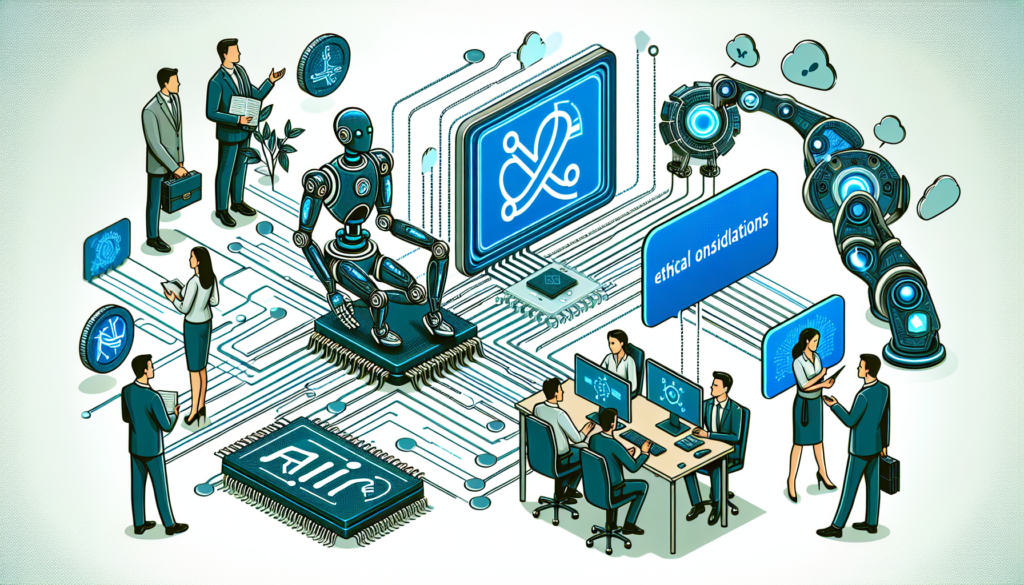In the age of digital transformation, where automation and artificial intelligence (AI) are fundamental pillars of progress, there arises a profound reflection on the ethics of their implementation in the workplace. The implications of these technologies extend beyond the margins of efficiency and productivity to delve into the lives of workers, business decision-making, and the very structure of society. This area of study combines technical insight with philosophical principles, creating fertile ground not only for innovation but also for moral debate and socioeconomic impact assessment.
Ethical Principles in AI and Workplace Automation
Current Ethical and Legal Norms
Regulations like the GDPR from the European Union advance in data protection and AI operations. The ethical guidance it provides is a framework that is expanding globally, setting precedents in transparency and consent in data collection.
Responsible Technology Development
The field of robotics and AI has increasingly accepted the concept of ethical design. This means that AI systems are developed considering from the outset the consequences of their use, anticipating biases and potential adverse effects.
Impact of Automation and AI on Employment
Changes in Employment Structure
Automation is reconfiguring the employment landscape, forcing a reexamination of roles: while some jobs decrease, others emerge, demanding an adaptable workforce and ongoing skill updates.
Job Displacement Versus Job Creation
Fear of tech-induced unemployment is countered with arguments about the creation of new employment niches. Economic analyses suggest more of a transition than a job elimination, with AI displacing tasks rather than complete positions.
Continuous Training and Education
Lifelong learning becomes a constant to remain relevant in a highly technified job market. Educational institutions and labor training policies are at the center of this necessary adaptation.
Issues of Justice and Equity
Biases and Discrimination
Concern grows around the perpetuation or even exacerbation of existing biases through automated systems. The need to develop fair and equitable AI has become a priority for researchers and developers.
Workers’ Rights and Privacy
With the monitoring of workers using AI technologies, privacy has become contested ground. AI in the workplace must balance efficiency with respect for the autonomy and dignity of the individual.
Equitable Distribution of Benefits
Automation can widen economic disparities if the wealth generated is not distributed equitably. Debates over universal basic income or the taxation of robots highlight these redistributive concerns.
Practical Applications and Case Studies
Automated Recruitment Systems
Corporations implement AI algorithms for candidate filtering; however, transparency in the selection criteria and the possibility of biases pose relevant ethical challenges.
Automation in the Manufacturing Industry
Automation in manufacturing has increased production but has also highlighted the tension between process optimization and the loss of traditional jobs. Ethical research points to the need to mitigate the social impact of these changes.
Virtual Assistants and Labor Relations
The use of virtual assistants like Siri or Alexa in the workplace creates new paradigms of human-technology interaction and raises questions about technological dependence and the depersonalization of the workspace.
Future Directions and Potential Innovations
Explainable AI Technologies (XAI)
Transparency in AI decision-making is crucial for trust and understanding. Explainable AI provides comprehensible justifications for automated decisions, facilitating greater collaboration between humans and machines.
Human-Machine Collaboration
AI as a complement to human work, rather than a replacement, is a promising vision. This collaboration can capitalize on the strengths of both humans and machines, generating synergies and new types of employment.
Impact on the Global Economy
The domino effect of automation and AI will reconfigure economies worldwide. Preparing for these changes is essential, and here national and international policies play a decisive role in creating a fair and conducive environment for everyone.
In conclusion, automation and AI are rewriting the rules of work, with the potential to both drive and destabilize. Ethical analysis must go hand in hand with technological advancement, ensuring that technology is an inclusive and democratizing force. Confronting these ethical challenges responsibly and with foresight will be crucial to forging a future where technology serves humanity fairly and equitably.

